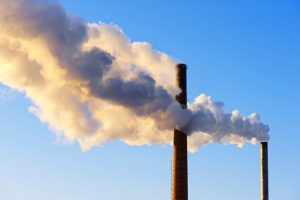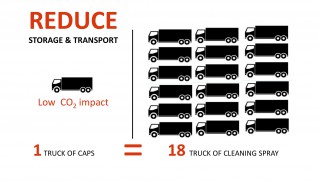COP23 – CO2 emissions: an inconvenient truth
The 23rd Annual Conference of the United Nations Framework Convention on Climate Change, or the COP 23 and organized by the Fiji Islands, was held in Bonn, Germany, from Monday November 6th to Friday November 17th, 2017. The objective of this conference was to observe what has been done and what countries are ready to undertake to reduce their carbon footprint and to fight against global warming. What can we take from COP 23?
- Increased CO2
 In terms of global CO2 emissions, the situation is alarming. There has never been a CO2 concentration as high as in 2016. 22 countries have managed to reduce their carbon emissions while 101 countries have seen their emissions increase. China, for example, unlike the two previous years, saw its carbon footprint increase this year. The reasons are a boom in industrial production and reduced hydro-electric production due to droughts.
In terms of global CO2 emissions, the situation is alarming. There has never been a CO2 concentration as high as in 2016. 22 countries have managed to reduce their carbon emissions while 101 countries have seen their emissions increase. China, for example, unlike the two previous years, saw its carbon footprint increase this year. The reasons are a boom in industrial production and reduced hydro-electric production due to droughts.
The exploitation of fossil fuels is not the only cause of this problem. Deforestation is also responsible for this year’s record concentration of CO2. There are many factors that facilitate global warming, but human activity and deforestation are obviously the two major elements.
- Transport
 The high CO2 concentration of 2016 is the direct result ofhuman activity such as transport, industrial activity, agriculture or waste treatment. Among these sectors with high emissions, transport is the one on which the ordinary citizen can more easily have a positive direct impact.
The high CO2 concentration of 2016 is the direct result ofhuman activity such as transport, industrial activity, agriculture or waste treatment. Among these sectors with high emissions, transport is the one on which the ordinary citizen can more easily have a positive direct impact.
So what can a citizen do to reduce his own carbon footprint? The simplest and most obvious way would be to change one’s transportation habits. Take advantage of more efficient public transportation in the big cities and take short trips by bike. If the car turns out to be absolutely necessary, go for a hybrid or 100% electric car.
There are also other ways to indirectly reduce the impact of the transport sector on global warming.
- B-cap struggles in its own way against its ecological footprint
 B-cap has always been aware of ecological issues. This is why, with its refill capsules, B-Cap proposes to industrialists and professionals an alternative solution that aims to reduce at the same time the amount of plastic, CO2 and waste. In addition to having a positive impact on the environment, companies using green services also improve their image with the public that is becoming increasingly aware of climate issues.
B-cap has always been aware of ecological issues. This is why, with its refill capsules, B-Cap proposes to industrialists and professionals an alternative solution that aims to reduce at the same time the amount of plastic, CO2 and waste. In addition to having a positive impact on the environment, companies using green services also improve their image with the public that is becoming increasingly aware of climate issues.
Limiting its ecological impact is therefore a boon to all stakeholders. Think about it.
You are interested by this ecological solution but it is not yet available in your country? Share this article and speak about the dosing caps to your local businesses. More and more companies rely on our products every day.
